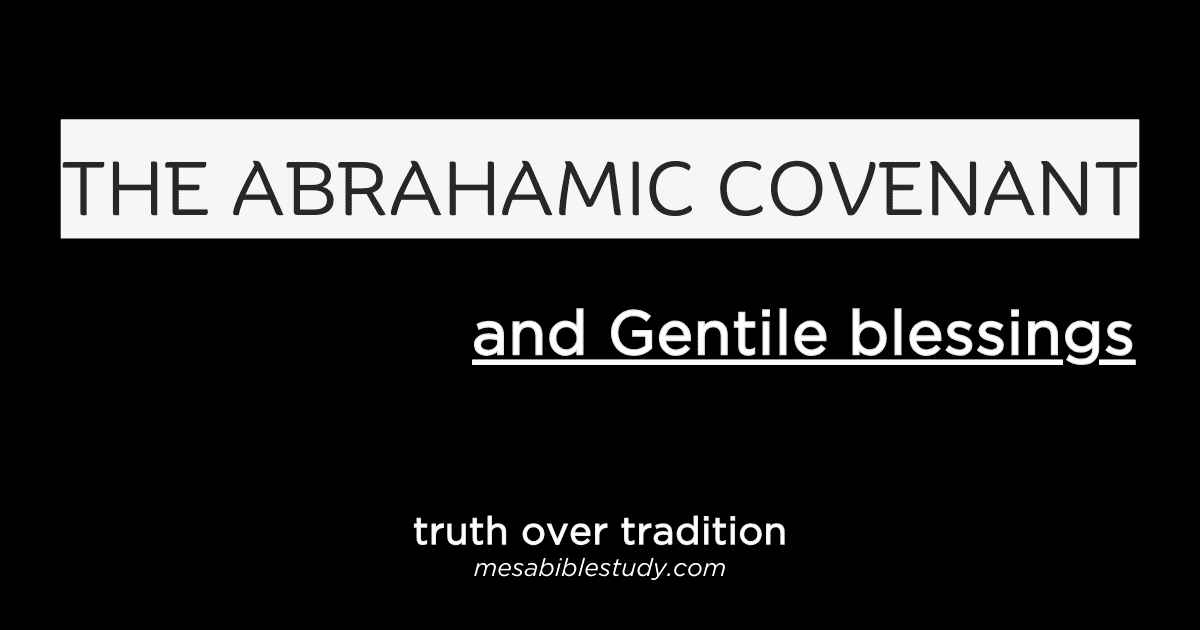The Abrahamic Covenant illuminated a profound truth—Gentile blessings would find their channel through Israel (Isaiah 42.1, 60.1-3; Zechariah 8.22–23). Contingent upon national Israel’s obedience, this blessing was intricately linked to the obedience of the chosen people. The Messiah, the conduit of blessings for Israel and, subsequently, for the Gentiles through Israel, framed the covenant’s narrative. However, a critical question arose (or at least it should, and it did for the so-called church fathers): How could Gentiles partake in these blessings amidst Israel’s disobedience, especially in their rejection and crucifixion of their own Messiah? They couldn’t.
In all of the Old Testament, the four gospels, and the early chapters of the book of Acts, there is no scripture record of God having a plan to bless the Gentiles apart from and through the nation of Israel.
The answer lay in the divine foreknowledge of God. Sovereign and omniscient, God knew Israel would reject their Messiah and devised a plan (Romans 11:32; Romans 11:25) before time began (Acts 2:23; 1 Peter 1:20), before He created the heavens and the earth, to bless Gentiles despite Israel’s disobedience. Putting a pause on the prophesied Day of the Lord, God does what is mind-boggling: He temporarily blinds Israel, commits them all to disobedience (read Romans chapter 11; highlighted in Romans 11:32), and pours out His love and grace in the unexpected call and conversion of Saul of Tarsus. Through Paul, God established the Church—the body of Christ—not based on a covenant (Ephesians 2.11–14), but on grace alone (Ephesians 2.5, 8–9), apart from the Mosaic law and temple worship.
This new revelation, the “secret” (μυστήριον) (Romans 16:25; Colossians 1:26; Ephesians 3:1-11; Romans 11:25), remained veiled until the ascended Lord revealed it to Paul alone many years after Pentecost. God’s preordained plans manifested as He blessed Gentiles (Romans 11; Romans 11:32) through the gospel of the grace of God (Acts 20:24; 1 Corinthians 15:1-4) and established the Church, which is His body, the body of Christ, despite Israel’s fall (Romans 11.25). A future awaits national Israel, poised to fulfill its role as a blessing to the nations during the tribulation and beyond, beginning with 144,000 young Jewish men preaching the gospel of the kingdom (Matthew 24:14) during 7 years of tribulation.
In all, God’s sovereignty prevails!

0 Comments